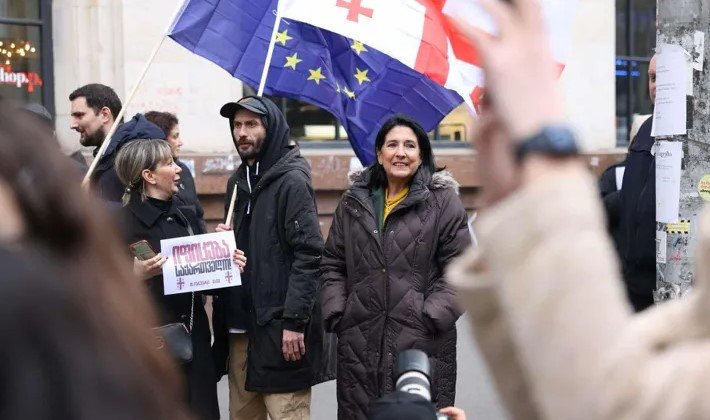A nationwide general strike is set to paralyze Georgia today, February 25, as thousands of workers and employers walk off their jobs in protest. The strike, heavily promoted on social media, is expected to bring together citizens from all sectors of the economy, culminating in a mass demonstration at Heroes’ Square in Tbilisi.
A Strike with Deep Historical Roots
February 25 carries heavy historical weight in Georgia. On this day in 1921, Soviet Russia seized Tbilisi, cutting short Georgia’s brief democratic experiment. The memory of that takeover remains etched in the national consciousness, serving as a rallying cry for those who view today’s strike as a fight for the country’s future.
Protesters argue that the current political climate presents a similar existential threat. Organizers say that three months of continuous demonstrations have only strengthened their resolve. Unlike previous resistance efforts, they claim this movement is more unified and determined.

Where the Protests Begin
Demonstrators will gather at key locations across Tbilisi before marching to Heroes’ Square. Organizers have assigned symbolic names to each march, evoking historical figures who fought for Georgia’s sovereignty:
- Vake Park – Marro Makashvili March
- Amagleba Street – Junker March
- Avlabari Metro Station – General Mazniashvili March
- Marjanishvili Square – Valiko Jugheli March
- Station Square – Valodia Goguadze March
- Sports Palace – Gogi Aleksi-Meskhishvili March
Each march is expected to draw thousands, with participants donning national colors and carrying banners demanding political change.
Workers and Businesses Join the Movement
What sets this protest apart from previous demonstrations is its broad-based participation. The movement isn’t confined to students or political activists; it has drawn in workers and business owners alike.
- Office workers, shopkeepers, and factory employees are expected to stop work at 16:00.
- Some companies have preemptively closed for the day, either in solidarity or due to concerns about disruptions.
- Public transport could see slowdowns, as many drivers have signaled their intention to join the strike.
Employers who support the movement say their businesses exist because of a free and independent Georgia. For them, the strike is about preserving that foundation.
A City on Edge
Authorities are preparing for potential clashes, though the organizers insist the protest will remain peaceful. Security forces have been deployed to key areas, and roadblocks may be set up to control crowds.
At Heroes’ Square, a heavy police presence is expected, as officials brace for one of the largest gatherings in recent years. The government has yet to issue a formal response but is closely monitoring developments.
What Comes Next?
While today’s strike is a powerful statement, the bigger question remains: what impact will it have? Organizers believe sustained public pressure is the only way to force political change. But whether this strike will mark a turning point or fade like previous movements is still uncertain.
For now, the streets of Tbilisi belong to the protesters, and Georgia watches to see what happens next.
